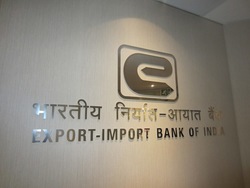SME Times | 5 February 2018
AfDB supports proposal to lease land for food supply to India
AfDB supports proposal to lease land for food supply to India
A $5 billion Exim Bank of India fund to support Africa's agriculture development through the "Feed Africa" project seems to fit into the Africa Development Bank's plans to improve the agriculture sector to increase food supply, provide jobs and propel economic growth on the continent.
In it's Economic Outlook for Africa 2018, the Africa Development Bank (AfDB) has noted that even though the agricultural sector is the primary employer in many African countries, particularly in rural areas where a majority of the people live, the sector's productivity remains low.
"The average share of agriculture in employment was 51 per cent between 2011 and 2016, and the share of agricultural value-added remained virtually unchanged at about 15 per cent," the AfDB said.
The Exim Bank of India, in a working paper published in May last year, planned to create an initial corpus with $5 billion to be sourced from the country's foreign exchange reserves.
"The country's reserves are in the region of $375 billion. The proposed amount of $5 billion constitutes less than 1.5 per cent of the reserves, and would not dent the foreign exchange reserves position."
According to Exim Bank, the fund would serve as a conduit for promoting investments in African agriculture and to meet India's import requirements of pulses and oilseeds, besides creating tremendous goodwill. The AfDB said that, in 16 countries, the sector accounted for more than 30 per cent of output, and in Liberia and Sierra Leone in the West Africa region, more than 48 per cent.
The working paper has proposed that African economies could avail development assistance from India to create agriculture infrastructure, adding: "The agricultural land supported by such eco-system could be leased to Indian firms for cultivation."
"This approach would mitigate the risks associated with upfront investments of the Indian investors. The lease rentals could serve as cash-flow to service the debt," Exim Bank said, adding, "Indian investors would require funds to pay upfront lease rentals, besides sourcing of agricultural inputs and implements."
It said the funding requirements could be met by Exim Bank's Overseas Investment Finance programme. However, it is proposed to create a dedicated India-Africa Agriculture Development Fund to support the Indian investments in the African agriculture sector.
"This would entail setting in place an appropriate institutional mechanism for the management of this fund. It is here that the role of the country's apex export finance institution, viz., Exim Bank, could gain significance since it has been actively financing overseas direct investment through its flagship programme," Exim Bank said.
In addition, it said, the funds could be utilised to extend medium to long term foreign currency finance to Indian enterprises planning to invest in the African agriculture and allied sector.
The sector in Africa has a bright future if the needed investment, like the Exim Bank has suggested, brought in to play. In the last decade, AfDB said, cereal yields have increased and "agriculture has a huge potential to provide high-productivity jobs, create wealth, and propel economic growth in Africa, especially if countries can expand agricultural exports." The AfDB believes "a robust and thriving agricultural sector can also stimulate broader economic development".
It therefore asked African governments to stimulate the creation of backward and forward linkages to other sectors, including manufacturing, logistics and retail, strengthening local operators and stimulating demand.
AfDB believes that there are three key interventions that could unleash the potential of the agricultural sector: Ensuring "acceptably egalitarian access to land, facilitating the use of modern inputs, seeds, and technologies, by improving access to credit and other means as well as strengthening the ability to develop and adapt agricultural technologies."
In addition, the AfDB says, for employment in the sector to increase, countries need to improve access to international agricultural markets, balance socio-economic demands with environmental considerations, and adapt to and mitigate the effects of climate change.
It is not only the agricultural sector that Exim Bank should be looking at, the AfDB says, adding that Africa's infrastructure stock was low, particularly in the power sector. "More than 640 million Africans have no access to energy, giving an electricity access rate for African countries at just over 40 per cent" -- the world's lowest.
The AfDB has directed potential investors' attention to the continent's energy potential, especially renewable energy, which it said was enormous, yet only a fraction is employed. Hydropower provides around a fifth of current capacity, but not even a tenth of its potential is utilised. Similarly, the technical potential of solar, biomass, wind and geothermal energy was huge, it said.














